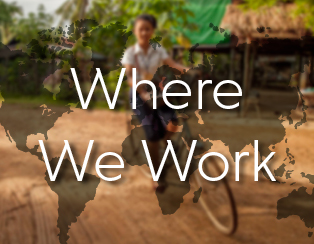ZAMBIA
Family Activity South-Central
In Zambia, HIV/AIDS afflicts roughly 12.5 percent of the population and has left more than 670,000 children orphaned, according to UNICEF. More than 1.4 million Zambian children are orphaned due to HIV/AIDS and other causes combined.
These children and youth, who are often living with, affected by or vulnerable to HIV/AIDS, are in need of additional support to reduce their likelihood of school dropout, abuse, poverty and additional health problems.
The Zambia Family Activity South-Central project aims to empower households caring for 144,000 orphans and vulnerable children with the knowledge and capacity to demand and access health and social services. The project is also supporting caregivers to better understand and provide positive parenting to these vulnerable children and youth.
The project is funded the U.S. Agency for International Development and implemented by Development Aid from People to People in Zambia, in partnership with Creative Associates International, Kabwe Adventist Family Health Institute and the Network of Zambian People Living with HIV and AIDS.
Working with 20 community-based organizations, Zambia Family Activity South-Central will help to improve their ability to provide wrap-around services to orphans and vulnerable children and families—with a focus on case management, child protection, activities to boost household economic resilience, health support, life skills and more.
The project leverages Creative’s Organizational Capacity Assessment Tool to assess the baseline strengths and weaknesses of each grantee organization and identify areas for improvement. By conducting in-person meetings to virtual coaching, CreativeU e-learning courses, and workshops, the project then designs and implements tailored capacity-building plans and curriculum to strengthen grantees’ operations and ability to reach target populations.
Zambia Family Activity South-Central also aims to strengthen government systems and establish new structures that support children and youth, their parents and communities.
By empowering government and civil society organizations to maintain, implement, and monitor a coordinated care system for orphans and vulnerable children, the project is working to ensure a sustainable continuum of support, long after the project ends.


